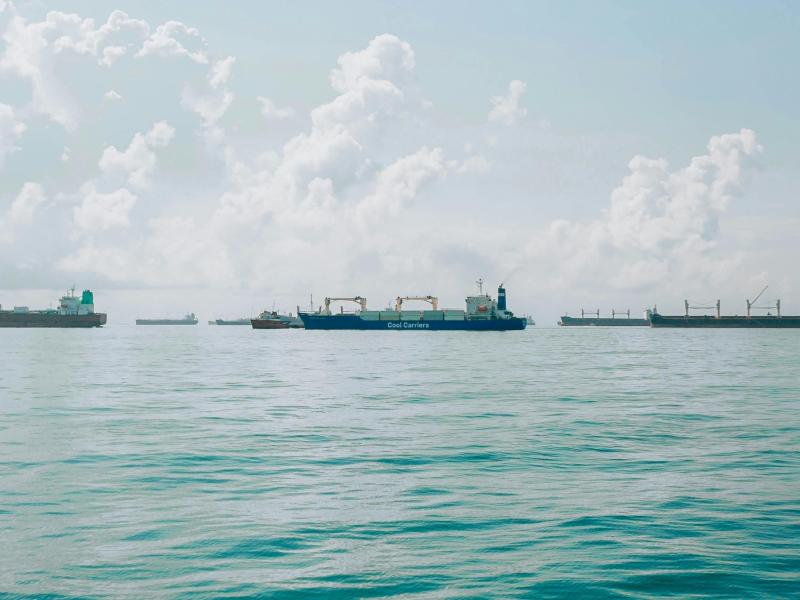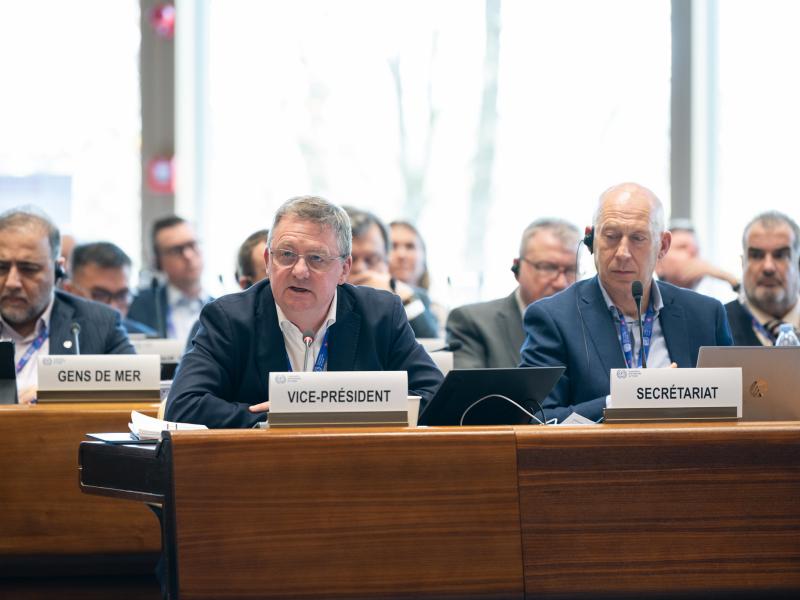The International Transport Workers’ Federation (ITF) expresses its deepest alarm at the catastrophic situation in Gaza and across the Occupied Palestinian Territories.
We issue this statement in accordance with international law and based on the findings of UN institutions, particularly the UN Office of the High Commissioner for Human Rights (OHCHR) and the UN Special Rapporteur on the situation of human rights in the Occupied Palestinian Territory, as well as the testimony of our affiliated unions and their members.
This statement reaffirms the ITF’s position adopted at its 46th Congress in Marrakech in 2024, through Resolution A02: The Situation in Palestine and Israel. In line with that resolution, we express our solidarity and support to our affiliates and their members and to all civilians and workers affected by the violence in Palestine and Israel.
Unfolding catastrophe: mass killings, starvation and forced displacement
Since the end of the ceasefire on 18 March 2025, Israel’s military offensive has killed thousands, the majority of them civilians. These operations have included the targeting of people queueing for food and attacks on hospitals, shelters and aid convoys.
Food and aid distribution is increasingly being outsourced to the Gaza Humanitarian Foundation (GHF) which operates outside international humanitarian standards, without UN oversight and in violation of international law. This undermines impartial humanitarian efforts and places lives at risk.
Israel’s continued blockade of key border crossings and attacks on relief infrastructure constitute a deliberate policy of starvation. UN agencies and humanitarian organisations have warned of the risk of a state-sanctioned famine. While we welcome Israel’s decision to support a one-week scale-up of aid, UN agencies and humanitarian organisations have made clear that this grossly insufficient of what is needed. The weaponisation of food, including the targeting of people seeking to survive, must be unequivocally condemned.
According to the UN and OHCHR, Israeli military operations in Gaza may constitute collective punishment – a clear violation of international humanitarian law. The scale and pattern of attacks on civilians, infrastructure and aid convoys are consistent with the characteristics of genocide.
Evacuation orders and forced displacement have reached new extremes. Over 1.7 million people have been displaced, many multiple times. UN experts warn that proposals to confine the population of Gaza into “closed zones” or “humanitarian islands” resemble a form of mass internment where displaced Palestinians would be held indefinitely under military control. Humanitarian legal experts and aid organisations have condemned these plans as an alarming escalation and a flagrant violation of the Geneva Conventions.
The escalation is not limited to Gaza. In the West Bank, Israeli forces and settler militias continue to conduct violent raids, demolish homes and infrastructure and forcibly displace residents – over 40,000 Palestinians since January 2025 alone.
Silencing of accountability and global repression
We are alarmed by intensifying efforts to suppress accountability and silence those advocating for Palestinian rights. The imposition of sanctions by the United States on UN Special Rapporteur Francesca Albanese, following her report exposing the “economy of genocide” and the complicity of businesses in sustaining the war, is a direct assault on international legal mechanisms. Such reprisals target mechanisms of justice rather than the perpetrators of injustice.
At the same time, governments around the world are cracking down on pro-Palestinian speech, including targeting trade unionists, students and civil society groups.
“We are witnessing the deliberate starvation of a people,” said ITF President Paddy Crumlin. “Palestinians are being bombed, displaced and starved into submission. This is not collateral damage – it is a policy of inhumanity. Food has been weaponised, children, women, men, the elderly, even aid workers – people who have dedicated their lives to helping others – are dying from hunger and aid is being obstructed.”
This crackdown has extended to peaceful humanitarian efforts. Civil society-led convoys, including the Madleen and Handala, were forcibly intercepted by Israeli forces in international waters, despite their publicly declared and lawful mission to deliver lifesaving aid to starving civilians in Gaza. UN Special Rapporteurs have reaffirmed that the people of Gaza have the right to receive aid through their own territorial waters, and that Israel must not interfere with the freedom of navigation protected under international law. They have made clear that Israel must adhere to international law and comply with orders from the International Court of Justice (ICJ) to ensure unimpeded access for humanitarian aid. The interception of these missions violates international law, criminalises solidarity and only prolongs the denial of aid to Gaza’s besieged population. The 17-year blockade must end.
“The global labour movement cannot look away. Our values demand that we speak out. We cannot accept a world where international law is trampled and starvation is being inflicted on civilians,” said Crumlin.
Transport workers taking action
Transport workers are standing up. ITF-affiliated and non-affiliated dockworker unions have taken direct action to block weapons shipments to Israel. Meanwhile, transport workers including seafarers and aviation workers remain at risk: attacks on commercial vessels in the Red Sea and strikes on Yemeni aircraft endanger maritime and aviation workers.
“These acts of solidarity uphold the core values of our movement, and we call for the protection of all transport workers and an immediate de-escalation of regional conflict,” said Crumlin.
The way forward: peace, justice and accountability
We reiterate our calls for:
- An immediate and permanent ceasefire;
- The unconditional release of all hostages and prisoners held without due judicial process;
- An end to the illegal occupation of Palestinian and Arab territories, occupied since 1967;
- Implementation of UN Security Council Resolutions 242 and 338 and a two-state solution based on justice and peace;
- Full accountability for all international crimes, including through the International Criminal Court;
- An end to the impunity of companies profiting from the occupation and war;
- An immediate opening of all borders to enable convoys of food and humanitarian aid to all parts of Gaza;
- Call for all states to implement the ICJ decisions without any delays.
We welcome the decision of the International Labour Conference to recognise Palestine as a non-member observer state at the International Labour Organization. The ITF also calls on countries to recognise the State of Palestine, as a meaningful and necessary step towards achieving a lasting peace through a two-state solution.
The ITF fully endorses the UN’s urgent call for immediate and decisive action to halt the ongoing atrocities. We urge the global trade union movement to mobilise all means at its disposal to hold companies to account and to ensure that they are not complicit in international and atrocity crimes, but instead uphold justice, human rights and international law.
“We must uphold international law, protect civilian life and push for a just resolution rooted in dignity and rights for all,” said ITF General Secretary Stephen Cotton. “Now is the time for global solidarity. The lives, dignity and future of the Palestinian people – and of peace in the region – depend on it.”
Photo credit: REUTERS



